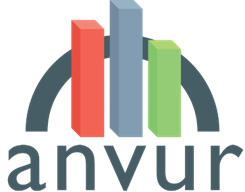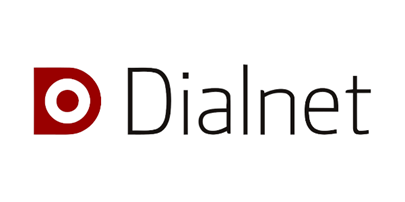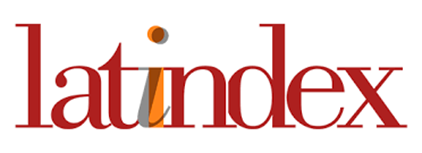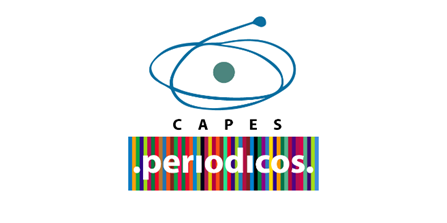REFLEXÕES SOBRE A INTELIGÊNCIA ARTIFICIAL NA AGENDA 2030 PARA O DESENVOLVIMENTO SUSTENTÁVEL
DOI:
https://doi.org/10.14210/rdp.v16n1.p30-64Keywords:
Agenda 2030, Inteligência Artificial, Desenvolvimento Sustentável.Abstract
RESUMO
O presente artigo tem como problema de pesquisa o seguinte questionamento: como a Inteligência Artificial (IA) pode contribuir para o cumprimento das metas da Agenda 2030 para o Desenvolvimento sustentável? A primeira seção se incumbe da demonstração das possíveis utilizações da IA para o efetivo atingimento dos Objetivos de Desenvolvimento Sustentável (ODS). Neste momento, destacam-se os aspectos positivos e os aspectos negativos na utilização da IA. Na segunda seção, realiza-se um estudo sobre os atos normativos de alguns países sobre as possíveis implicações negativas e regulamentais da IA para com a sociedade. Para tanto, utiliza-se os métodos dedutivo e de pesquisa integrada. Ao final, demonstra-se que a IA apresenta-se como importante fator da equação posta pela Agenda 2030, desde que devidamente observada e regulada.
PALAVRAS-CHAVE: Agenda 2030; Inteligência Artificial; Desenvolvimento Sustentável.
ABSTRACT
This article has as a research problem the following question: how can Artificial Intelligence (AI) contribute to meeting the goals of the 2030 Agenda for Sustainable Development? The first section is responsible for demonstrating the possible uses of AI for the effective achievement of the Sustainable Development Goals (SDGs). At this moment, the positive and negative aspects in the use of AI are highlighted. In the second section, a study is carried out on the normative acts of some countries on the possible negative and regulatory implications of AI for society. For this, the deductive and integrated research methods are used. In the end, it is shown that AI presents itself as an important factor in the equation posed by Agenda 2030, as long as it is properly observed and regulated.
Keywords: Agenda 2030; Artificial intelligence; Sustainable development.
Downloads
References
BAINS, N. S.; VIDAL, F. Canada-France Statement on Artificial Intelligence. 2018. https://www.international.gc.ca/world-monde/international_relations-relations_internationales/europe/2018-06-07-france_ai-ia_france.aspx?lang=eng
BREWSTER, S. Wilting shrubs? Diagnose plant diseases with an app. MIT Technology Review. 2016. https://www.technologyreview.com/s/602792/wilting-shrubs-diagnose-plant-diseases-with-an-app/
BRYNJOLFSSON, E. & MCAFEE, A. The Second Machine Age: Work, Progress, and Prosperity in a Time of Brilliant Technologies. W. W. Norton & Company, 2014.
CHUCK, Gill. Artificial intelligence could help farmers diagnose crop diseases. 2017. http://news.psu.edu/story/429727/2016/10/04/research/artificial-intelligence-couldhelp-farmers-diagnose-crop-diseases
COCKBURN, I., HENDERSON, R. & STERN, S. The Impact of Artificial Intelligence on Innovation. NBER, 2018. https://doi.org/10.3386/w24449
DING, J. How China Seeks to Govern. AI. Medium. September 5, 2018. Disponível em https://medium.com/@ChallengesFnd/how-china-seeks-togovern- ai-baf1c0cd1a54
FRANCESCATO, D. Globalization, artificial intelligence, social networks and political polarization: new challenges for community psychologists. CREFERÊNCIA DAS FONTES CITADAS. 4, 2018, p. 20–41. http://sibaese.unisalento.it/index.php/cpgp/article/viewFile/17684/15882
FUSO NERINI, F.; SLOB, A.; ERICSDOTTER ENGSTRÖM, R.; TRUTNEVYTE, E. A Research and Innovation Agenda for Zero-Emission European Cities. Sustainability 2019, 11, 1692. https://doi.org/10.3390/su11061692
GORALSKI, Margareth A.; TAN, Tay Keong. Artificial intelligence and sustainable development. The International Journal of Management Education. Vol. 18, 2020.
HELBING D. ET AL. Will Democracy Survive Big Data and Artificial Intelligence? In: HELBING D. (EDS) Towards Digital Enlightenment. Springer, Cham, 2019. https://doi.org/10.1007/978-3-319-90869-4_7
HELBING, D. & POURNARAS, E. Society: build digital democracy. Nature, 527, 2015, p. 33–34. https://www.nature.com/news/polopoly_fs/1.18690!/menu/main/topColumns/topLeftColumn/pdf/527033a.pdf
IM’NOVATION. https://www.imnovation-hub.com/society/types-of-smart-sensors-applied-to-agriculture/#0
LEE, Kai-Fu. Inteligência Artificial. Rio de Janeiro: Globo Livros, 2019.
LEE, Kai-Fu. 'The Algorithm Will See You Now'. AISuperpowers. 2019. https://aisuperpowers.com/blog/kai-fu-lee
LOHR, S. From agriculture to art – the AI wave sweeps. New York Times, Business Day. 2019. https://www.nytimes.com/2018/10/21/business/from-agriculture-to-art-the-ai-wave-sweeps-in.html
LYNCH, Shana. Andrew Ng: Why AI Is the New Electricity. Stanford Business. 2017. https://www.gsb.stanford.edu/insights/andrew-ng-why-ai-new-electricity
MCCARTHY, J. What is artificial intelligence? Stanford University, 2007, p. 2-15.
MONTREAL. Montréal Declaration for a Responsible Development of Artificial Intelligence. 2020. https://www.montrealdeclaration-responsibleai.com/
NAGLER, J., VAN DEN HOVEN, J. & HELBING, D. in Towards Digital Enlightenment, Springer International Publishing, 2019, p. 41–46. https://doi.org/10.1007/978-3-319-90869-4_5
O’CONNOR, Marry Catherine. How AI Could Smarten Up Our Water System. Medium. 2017. https://medium.com/s/ai-for-good/how-ai-could-smarten-up-our-water-system-f965b87f355a
OECD. Science, Technology and Innovation Scoreboard 2017: the Digital Transformation. Organisation for Economic Co-operation and Development, Paris, 2017.
POLIDO, Fabrício Bertini Pasquot. Inteligência artificial entre estratégias nacionais e a corrida regulatória global: rotas analíticas para uma releitura internacionalista e comparada. Rev. Fac. Direito UFMG, Belo Horizonte, n. 76, pp. 229-256, jan./jun. 2020. https://www.direito.ufmg.br/revista/index.php/revista/article/view/2067/1931
RASP, Stephan; PRITCHARD, Michael S; GENTINE, Pierre. Deep learning to represent subgrid processes in climate models. PNAS. Vol. 115, n. 39, p. 9684-9689. https://doi.org/10.1073/pnas.1810286115. https://www.pnas.org/content/pnas/115/39/9684.full.pdf
SEARLE, J. Minds, brains, and programs. Behavioral and Brain Sciences. Vol. 3, n. 3. 1980, p. 417-424.
SÉVIGNY, B. Québec lays the groundwork for a world observatory on the social impacts of artificial intelligence and digital Technologies. 2018. http://www.scientifique-en-chef.gouv.qc.ca/en/nouvelles/quebec-jette-bases-dun-observatoire-mondial-impacts-societaux-de-lintelligence-artificielle-numerique/
STARK Luke, PYLYSHYN, Zenon W. Artificial Intelligence (AI), cit.; ‘Here’s how Canada can be a global leader in ethical AI’. In: The Conversation. 2018. https://theconversation.com/heres-how-canada-can-be-a-global-leader-in-ethical-ai-90991
UNESCO. Artificial intelligence for sustainable development: challenges and opportunities for UNESCO’s science and engineering programmes. 2019.
UNESCO. Canada first to adopt strategy for artificial intelligence. 2018. http://www.unesco.org/new/en/member-states/single-view/news/canada_first_to_adopt_strategy_for_artificial_intelligence/
UNESCO. Towards a monopolization of research in artificial intelligence? Natural Sciences Sector. 2018. www.unesco.org/new/en/natural-sciences/sciencetechnology/single-view-sc-policy/news/towards_a_monopolization_of_research_in_artificial_ intellige
UNITED KINGDOM. AI Sector Deal One Year On. 2019. https://assets.publishing.service.gov.uk/government/uploads/system/uploads/attachment_data/file/819331/AI_Sector_Deal_One_Year_On__Web_.pdf
UNITED KINGDOM. Government response to House of Lords Artificial Intelligence Select Committee’s Report on AI in the UK: Ready, Willing and Able?. 2018. https://www.parliament.uk/documents/lords-committees/Artificial-Intelligence/AI-Government-Response2.pdf
VINUESA, R., AZIZPOUR, H., LEITE, I. et al. The role of artificial intelligence in achieving the Sustainable Development Goals. Nat Commun 11, 2020, p. 233. https://doi.org/10.1038/s41467-019-14108-y
VIPKID. https://m.vipkid.com/
WWWF. Artificial Intelligence: the Road Ahead in Low and Middle-Income Countries. World Wide Web Foundation. 2017. https://webfoundation.org/docs/2017/07/AI_Report_WF.pdf
Downloads
Published
How to Cite
Issue
Section
License
Na qualidade de autor(es) da colaboração, original e inédita, sobre o qual me(nos) responsabilizo(amos) civil e penalmente pelo seu conteúdo, após ter lido as diretrizes para autores, concordado(amos) com o Regulamento da Revista Eletrônica Direito e Política e autorizo(amos) a publicação na rede mundial de computadores (Internet), permitindo, também, que sua linguagem possa ser reformulada, caso seja necessário, sem que me(nos) seja devido qualquer pagamento a título de direitos autorais, podendo qualquer interessado acessá-lo e/ou reproduzi-lo mediante download, desde que obedeçam os Direitos Autorais.

















